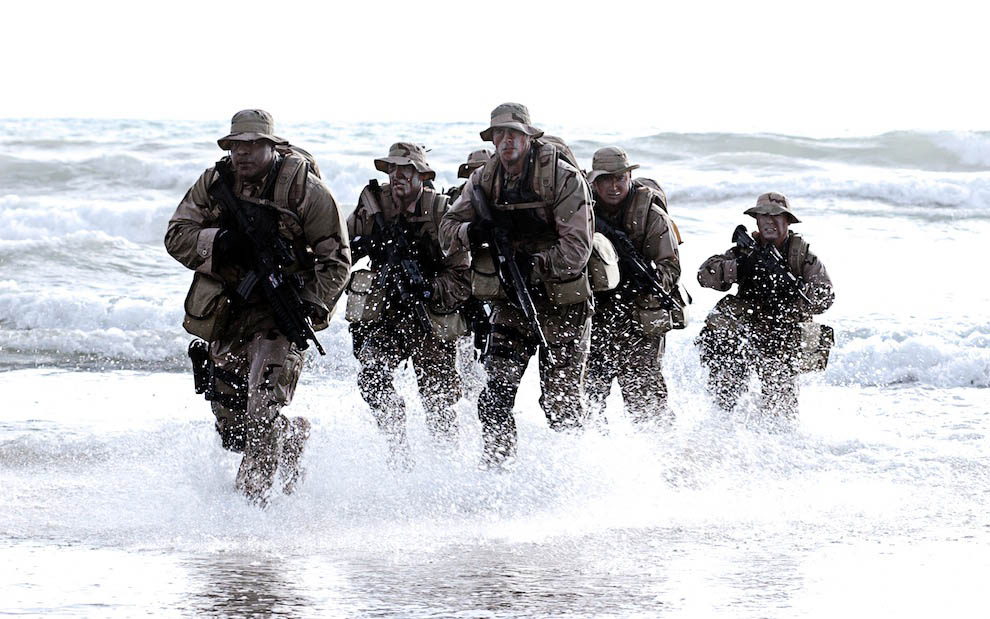6 Battle-Tested Leadership Lessons from the Navy SEALs
I once had a boss who with the reputation of being very harsh. He could be hard on people. But that wasn’t my experience. Why? I knew the secret.
My boss was definitely tough. On a few different occasions I saw him chew a person’s face off. But here’s why: He hated it when someone tried to shift blame for an outcome, especially someone in leadership.
Taking Total Responsibility
One of the most important marks of an effective leader—a leader that other leaders can trust—is the willingness to accept total responsibility for the outcome.
I came to my boss several times with major problems—million-dollar problems. But I owned it. Instead of blasting me, he leant support, patience, and advice.
Why am I telling you this story? Because I recently finished reading Extreme Ownership: How U.S. Navy SEALSs Lead and Win by Jocko Willink and Leif Babin.
Willink and Babin were both officers in Navy SEAL Task Unit Bruiser. These guys fought through the worst days of the battle of Ramadi in Iraq. What they learned on the ground is now part of the training for incoming SEALs.
It probably would have helped a few of my colleagues with our old boss too.
When You Blow it Big Time
Willink starts on a low note—with an incident that went disastrously wrong. When it was over, a SEAL was injured, an Iraqi ally was dead, and many others were placed in serious danger.
And the whole thing could've been avoided. Multiple breakdowns in systems and protocols added up to one big disaster. It was a case of friendly fire.
Right after the event the Navy wanted an investigation. Willink, who was in charge, collected all the relevant information. He found mistakes at all levels. But he didn’t feel right about submitting the list without adding one crucial detail.
“I had to take complete ownership of what went wrong,” says Willink. “That’s what a leader does—even if it means getting fired.”
It’s an example of what Willink and Babin call extreme ownership. It was not only the right thing to do, it also paid off. By taking the blame, Willink kept the trust of his team and was able to identify ways of improving operations.
It also preserved trust with his commanders. “Looking back,” he says, “it’s clear that, despite what happened, the full ownership I took of the situation actually increased the trust my commanding officer and master chief had in me.”
If he had thrown someone under the bus, he would have lost the trust of his team, making it impossible to lead them. He also would have told his commanders that he couldn’t manage his team. Lose-lose.
6 Battle-Tested Lessons
The idea of extreme ownership is the backbone of Willink and Babin’s battle-tested advice for leaders in any area of life. There are six leadership lessons that stand out for me:
- Take ownership. Our effectiveness as leaders depends on how much we own what’s on our plate. We usually reject responsibility out of self-protection. But as the Willink example showed, if he had dodged responsibility it would have undermined him. By owning the problem, he was able to fix it.
- Stay out of your own way. That kind of self-protection is all about our egos, isn’t it? Willink and Babin point out that ego can be a good thing. It’s part of what drives us to succeed. But it can get in our own way. Usually it happens when take our eye off the mission and start worrying about winning and losing by less important measures—like status.
-
Support your team. Willink and Babin call this “covering and moving.” As I’ve written about before, the team is really the whole game. And it’s essential that everyone on the team thinks so. The moment a leader or others are out for themselves and their own win, you’ve lost.
-
Simplify. Business is simple. We deliver something people want and charge them for the service. But how we do that can get complicated in a hurry. Here’s the catch: A complicated plan is hard to communicate to our teams, and that makes it hard for them—and us—to win.
-
Stay focused. There are a million distractions on the battlefield. Same with the office. If we lose focus on the priorities, we’ll get overwhelmed and fail. This is why I’m such a major advocate of life planning and goal setting. They’re not ends in themselves. They enable to set and stay focused on your targets.
-
Empower your people. This one is critical. You might think if you’ve got to take this kind of total, extreme ownership that you have to do everything. No way. First, you can’t do it. Second, that’s why you have a team! Leaders delegate. Willink and Babin stress training, empowerment, and communicating clear responsibilities and expectations.
There’s more gold to mine in Extreme Ownership. I’ve seen hundreds of cases over the years where developing this mindset would have made a massive difference in the success of a leader and his team.
When we don’t take ownership, we forfeit the win. And usually a lot more as well.
Disclosure of Material Connection: Some of the links in the post above are “affiliate links.” This means if you click on the link and purchase the item, we will receive an affiliate commission. Regardless, we only recommend products or services we use and believe will add value to our readers. We are disclosing this in accordance with the Federal Trade Commission’s 16 CFR, Part 255: “Guides Concerning the Use of Endorsements and Testimonials in Advertising.









